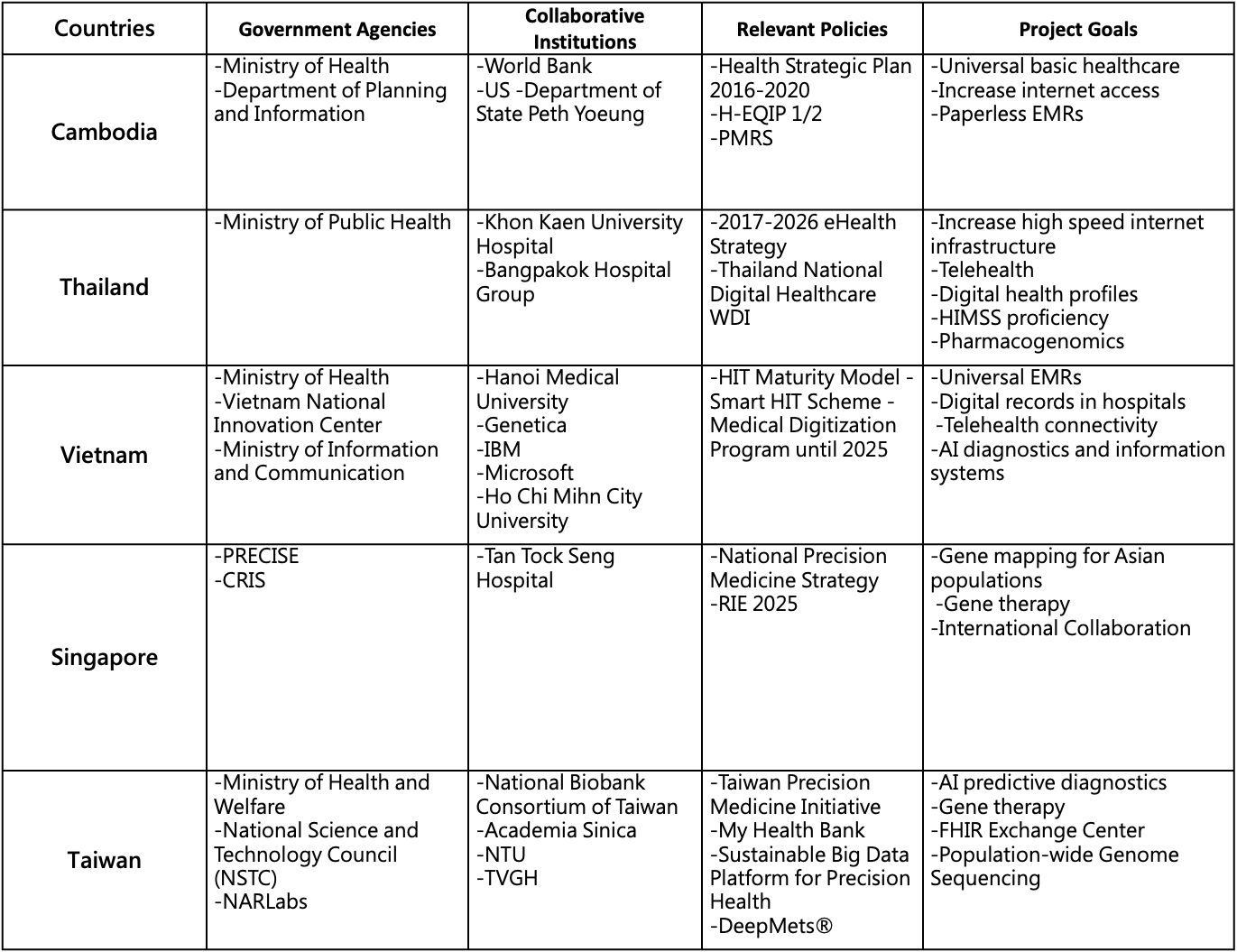Future collaboration
Taiwan is positioned well to collaborate with Cambodia, Thailand, Vietnam and Singapore in the future. Taiwan has the experience in digital transformation to assist Cambodia, Thailand and Vietnam. For Cambodia, the country is lacking basic internet infrastructure, and is in need of financial assistance. The Ministry of Economic Affairs, or another agency involved in the New Southbound Policy, could take the funding role that the US State Department has in the past. This would allow the Department of Planning and Health Information implement Patient Management and Registration system nationwide by digitizing more EMRs.
Taiwan also has the experience of moving its medical records from paper to digital. Therefore, Taiwan can propose collaborate on policy with Thailand’s Ministry of Public Health and Vietnam’s Ministry of Health to improve policy like the HIT Maturity Model and the 2017-2026 eHealth Strategy. Also, Taiwan can train staff at hospitals such as Hanoi Medical University and Khon Kaen University Hospital in HIMSS, or provide opportunities for NSP students to learn these skills in Taiwan.
Taiwanese universities or research institutes can collaborate with Singapore on genetic testing in Asian populations. MOST and NARLabs can share genetic information collected through programs such as DeepMets® and the “Sustainable Big Data Platform for Precision Health.” PRECISE can work with the aforementioned institutions through the Taiwan Precision Medicine Initiative. In turn, Academia Sinica can collaborate with Singapore in more advanced genetic therapy through CRIS.

Photo source: Pexels
Domestically, the already overtaxed public health care system gives Taiwan an urgent reason to start implementing precision medicine. One potentially simple, but effective, way to drive down costs is through wearable devices. Through the Ministry of Health and Welfare, elderly and disadvantaged groups could receive subsides to purchase such equipment.
Afterwards, healthcare professionals could track different vital signs of patients, over the short, medium, and long term. Based on this information, physicians could provide intervention and lifestyle recommendations, when necessary, in real time. These efforts are very suitable for indigenous groups that live far from clinics and hospitals because wearable devices can integrate into telemedicine initiatives. Research institutions could determine if after, one-year, five-year and ten-year increments, these devices are effective in lower rates of common chronic disease such as heart conditions, cancer. In addition, researchers could study if monitoring abnormalities in heart rate, combined with regular contact with physicians, have an impact on lifestyle related ailments such as alcoholism, depression, and anxiety.
Precision medicine also monitors how environment impacts health outcomes. The Department of Transportation could collaborate with the Ministry of Health to determine if people that live by busy throughfares and industrial zones are at higher risk for lung cancer. After determining how much higher PM 2.5 is next to high-risk areas, the government could monitor individual’s lung capacity through wearable devices, and provide free screening on a regular basis for those deemed at high risk. These residents could be encouraged to enroll in the National Health Insurance mobile app for reminders to have regular doctor’s appointments.
In addition, individuals living in close proximity to polluted areas could be encouraged to participate in genetic testing and counseling. Such high risk groups could be placed on priority lists for screening that determines if they are genetically predisposition for cancer or other disease that environmental contamination aggravates. The government could then determine if surveying potential at risk groups, providing genetic testing, and regular genetic counseling, is more cost-effective than providing cancer treatment after it appears.
These efforts that integrate the pillars of precision medicine, which are pharmacogenomics, digital health devices, genetic testing, and prediction, all can bolster Taiwan’s collaborative efforts with its partners abroad. Through determining best practices and sharing them with New Southbound partner countries at all developmental levels, Taiwan can bolster its influence and forge connections in this rapidly emerging industry.
Projects, relevant agencies, policies, and goals of New Southbound countries in precision medicine

-
Chart: Projects, relevant agencies, policies, and goals of New Southbound countries in precision medicine.
-
Published: July 2022